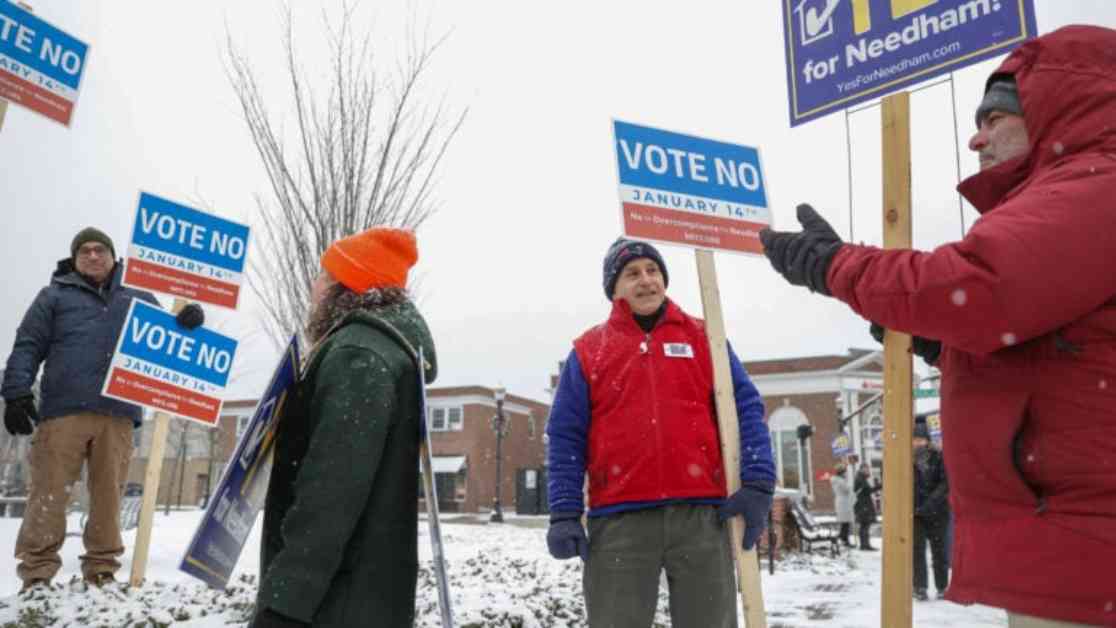State Issues New Guidelines for MBTA Zoning Act After SJC Ruling
In a recent development, the state has issued emergency regulations for the MBTA Communities Act following a ruling by the Supreme Judicial Court (SJC). The SJC found the controversial zoning law to be constitutional but “unenforceable,” prompting the state to take action. The Executive Office of Housing and Livable Communities has announced that communities that have not yet submitted a compliance application will have six months to comply with the new guidelines.
Communities React to New Regulations
The news has sparked mixed reactions among residents, with Needham residents in particular rallying both in support of and against the vote on the new MBTA zoning regulations. The state has emphasized the importance of local involvement in developing zoning districts that prioritize multifamily housing in areas determined to be suitable by the community.
Deadline for Compliance
Communities that missed prior deadlines are required to submit a new action plan to the state by February 13, 2025, outlining their strategy to achieve compliance. They will then have until July 14, 2025, to submit a district compliance application. Communities designated as adjacent small towns have until December 31, 2025, to adopt zoning changes.
Legal Battle and Impact on Communities
The MBTA Communities Act, signed into law in 2021, has faced opposition from various municipalities, including Milton and Weston. These communities have been reluctant to comply with the law, citing concerns about overreach. However, proponents argue that the law is necessary to address the state’s housing crisis.
The recent SJC decision highlighted the failure of the Executive Office of Housing and Livable Communities to comply with the Administrative Procedure Act, rendering the MBTA Communities Act unenforceable. Despite efforts to engage with affected communities, the office did not complete all required steps before announcing the guidelines in 2023.
As the state moves forward with implementing the new regulations, it remains to be seen how communities will respond and whether compliance rates will increase. The deadline for submitting compliance applications looms, and the fate of zoning changes in various municipalities hangs in the balance.
This complex legal battle has underscored the challenges of balancing state regulations with local autonomy, raising important questions about the role of government in shaping community development. It is clear that the MBTA Communities Act has far-reaching implications for residents across Massachusetts, and the ongoing debate surrounding its enforcement will continue to shape the future of housing policy in the state.






